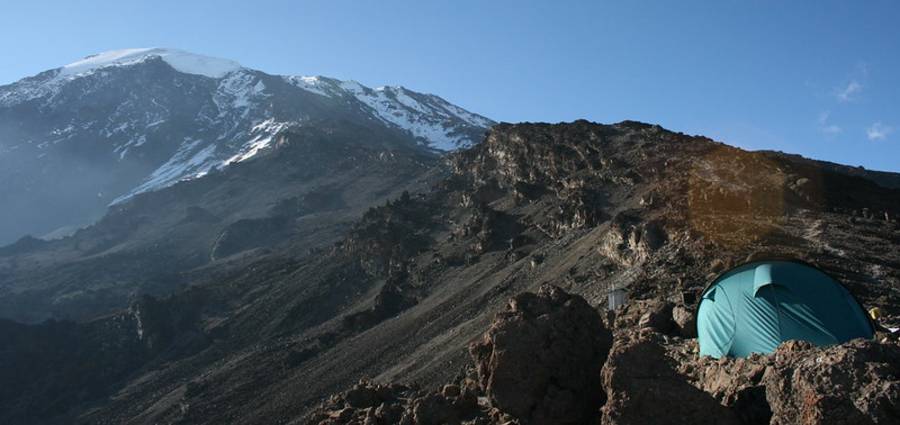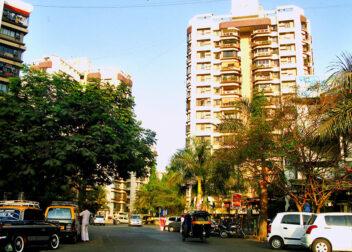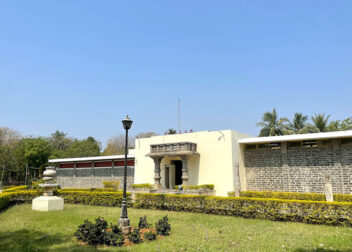Climbing Kilimanjaro
Climbing Mount Kilimanjaro is a challenging but rewarding experience. As the highest peak on the African continent, it stands at an impressive 5,895 meters (19,341 feet) above sea level. Here are some things you should know before embarking on this adventure:
- Fitness level: Climbing Kilimanjaro requires a moderate to high level of fitness. It’s recommended that you train for at least three months prior to your climb by doing regular cardio exercise, strength training, and hiking.
- Choose a reputable tour operator: Choose a reputable tour operator that is licensed by the Kilimanjaro National Park. Do some research and read reviews before selecting a company to ensure you are in good hands.
- Route options: There are several routes to choose from, each with varying degrees of difficulty and different scenic views. The most popular routes are Marangu, Machame, Lemosho, and Rongai.
- Weather: The weather can be unpredictable on the mountain, so it’s important to pack accordingly. It can be very cold at night, so be sure to bring warm clothing and a good sleeping bag.
- Altitude sickness: Altitude sickness is a common issue when climbing Kilimanjaro. It’s important to acclimatize properly and drink plenty of water to avoid it.
- Duration: The duration of the climb depends on the route you choose, but most take between 5 to 9 days. It’s important to give yourself enough time to acclimatize and enjoy the experience.
- Cost: Climbing Kilimanjaro is not cheap, but the cost varies depending on the route and tour operator. Expect to pay between $1,500 to $5,000, depending on your requirements.
Overall, climbing Kilimanjaro can be a life-changing experience, but it’s important to prepare properly, choose a reputable tour operator, and listen to your body.
Things to Know
Sure, here are some general things you might find helpful to know:
- Time zones: The world is divided into different time zones, so when traveling it’s important to be aware of the local time in the country you’re visiting. This can help you avoid missing flights or appointments.
- Currency: Many countries have their own currency, so it’s important to be familiar with the local currency and exchange rates. It’s also a good idea to have some local currency on hand for small transactions.
- Culture and customs: Different cultures have different customs and traditions, so it’s important to be respectful and aware of local customs when traveling. This can help you avoid offending locals and make your trip more enjoyable.
- Language: Learning a few basic phrases in the local language can be very helpful when traveling to a foreign country. It can help you communicate with locals and navigate your way around.
- Safety: Safety is an important consideration when traveling. Be aware of your surroundings and take precautions to avoid pickpocketing or theft. It’s also a good idea to research any potential risks or dangers in the area you’ll be visiting.
- Transportation: Depending on where you’re traveling, transportation options may vary. It’s important to research the best transportation options in advance and plan your route accordingly.
- Food and drink: Trying local cuisine can be a highlight of traveling, but it’s important to be aware of any potential food or drink safety issues. This can include avoiding tap water, eating at reputable establishments, and being aware of common food allergies.
These are just a few things to keep in mind when traveling, but every trip is unique. It’s always a good idea to do some research and plan ahead to ensure a safe and enjoyable experience.
Things to do
Sure, here are some fun things to do in various places around the world:
- Visit the Eiffel Tower in Paris, France: One of the most iconic landmarks in the world, the Eiffel Tower offers stunning views of Paris from its observation deck.
- Go on a safari in the Serengeti, Tanzania: A safari in the Serengeti offers the opportunity to see some of the most amazing wildlife in the world, including lions, elephants, and giraffes.
- Explore the Great Wall of China: A must-see for anyone visiting China, the Great Wall is an engineering marvel that stretches over 13,000 miles.
- Visit Machu Picchu in Peru: Machu Picchu is a fascinating ancient city located in the Andes Mountains that was built by the Incas in the 15th century.
- Go skiing in the Swiss Alps: Switzerland offers some of the best skiing in the world, with stunning views of the mountains and plenty of après-ski activities.
- Take a hot air balloon ride over Cappadocia, Turkey: This region in Turkey is known for its unique rock formations and taking a hot air balloon ride is a great way to experience it from above.
- Explore the temples of Angkor Wat in Cambodia: Angkor Wat is a UNESCO World Heritage site that features ancient temples and ruins dating back to the 12th century.
These are just a few examples, but there are endless opportunities for adventure and exploration around the world. Whether it’s visiting famous landmarks, trying new foods, or experiencing unique cultures, travel can be an incredibly enriching experience.
Essential Information
Sure, here are some essential pieces of information you might find helpful:
- Emergency contacts: It’s important to have emergency contacts on hand when traveling. This can include the phone number for your embassy, the local emergency services, and any important contacts at home.
- Passport and visa information: When traveling internationally, it’s important to have a valid passport and any necessary visas. Make sure you check the expiration date of your passport and apply for any necessary visas well in advance of your trip.
- Travel insurance: It’s a good idea to purchase travel insurance when traveling internationally. This can help cover unexpected expenses such as medical emergencies, trip cancellations, and lost or stolen luggage.
- Local laws and customs: Different countries have different laws and customs, so it’s important to familiarize yourself with local customs and laws before traveling. This can help you avoid any potential legal issues and ensure that you’re being respectful of local culture.
- Currency exchange rates: When traveling to a foreign country, it’s important to be familiar with the exchange rate for your home currency. This can help you avoid being overcharged and ensure that you’re getting a fair price.
- Health considerations: Depending on where you’re traveling, there may be certain health considerations to keep in mind. This can include vaccinations, malaria prevention, and being aware of any potential food or water safety issues.
- Transportation options: Depending on where you’re traveling, transportation options may vary. It’s important to research the best transportation options in advance and plan your route accordingly.
These are just a few examples, but every trip is unique. It’s always a good idea to do some research and plan ahead to ensure a safe and enjoyable experience.
How to reach
The best way to reach Kilimanjaro is by flying into the Kilimanjaro International Airport (JRO) in Tanzania. Many major airlines have flights to this airport, including Ethiopian Airlines, KLM, and Turkish Airlines. From the airport, you can arrange for a transfer to your hotel or directly to the mountain.
Alternatively, you can also fly into the Julius Nyerere International Airport (DAR) in Dar es Salaam, Tanzania or the Jomo Kenyatta International Airport (NBO) in Nairobi, Kenya, and then take a connecting flight or a bus to Kilimanjaro.
Once you’re in Kilimanjaro, you can travel to the base of the mountain by car or bus. Most people start their climb from the village of Moshi, which is located at the base of the mountain. From Moshi, you can arrange for a taxi or shuttle to take you to the starting point of your climb. It’s important to arrange your transportation in advance to ensure a smooth and safe journey.
FAQ
Sure, here are some frequently asked questions about travel:
Do I need a visa to travel to a foreign country?
It depends on the country you’re traveling to and your nationality. Some countries require a visa for all visitors, while others offer visa-free travel or visa-on-arrival. It’s important to research the visa requirements for your destination well in advance of your trip.
Is it safe to travel to a particular country?
The safety of a particular country can vary depending on a number of factors, including political stability, crime rates, and natural disasters. It’s important to research the safety of your destination before you travel and to take appropriate precautions while you’re there.
How much money should I budget for my trip?
The amount of money you’ll need to budget for your trip will depend on a number of factors, including your destination, the length of your trip, and your travel style. It’s important to research the cost of living in your destination and to budget accordingly.
What should I pack for my trip?
The items you’ll need to pack for your trip will depend on your destination, the activities you have planned, and the season. It’s a good idea to make a packing list well in advance of your trip and to consider factors such as weather, local customs, and the type of transportation you’ll be using.
What are some common scams to watch out for when traveling?
Common scams when traveling include overcharging for taxi rides, fake police officers, and pickpocketing. It’s important to be aware of these scams and to take appropriate precautions to avoid them.
Do I need travel insurance?
Travel insurance can be a good idea, especially if you’re traveling to a foreign country or engaging in activities such as adventure sports. Travel insurance can help cover unexpected expenses such as medical emergencies, trip cancellations, and lost or stolen luggage.
What should I do if I lose my passport?
If you lose your passport while traveling, it’s important to contact your embassy or consulate as soon as possible. They can help you obtain a replacement passport and provide advice on how to proceed. It’s also a good idea to have a photocopy of your passport stored in a safe place in case of emergencies.
These are just a few examples, but every trip is unique. It’s always a good idea to research and plan ahead to ensure a safe and enjoyable experience.



